Search Results
Showing results 101 to 120 of 647

Ready, Set, Fizz!
Source Institutions
In this activity, learners explore the chemical reaction between water and effervescent antacid tablets. This hands-on activity models how a material can act differently when it's nanometer-sized.
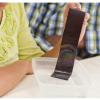
Rainbow Film
Source Institutions
In this activity, learners use clear nail polish to create a beautiful iridescent pattern on black paper. Learners discover that a thin film creates iridescent, rainbow colors.
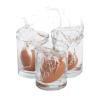
Egg Drop Trick
Source Institutions
In this activity, learners explore the real science behind an egg drop "magic trick." Learners will wow their families by harnessing gravity, friction and motion to make 3 eggs fall off of their pedes
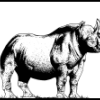
Exponential Models: Rhinos and M&M’s ®
Source Institutions
In this math lesson, learners model exponential decay and exponential growth using M&M's, paper folding, and African rhino population data.
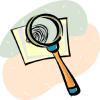
Fingerprint Identification
Source Institutions
In this activity (on page 2) about fingerprint analysis, learners use graphite from a pencil and scotch tape to capture their fingerprints.
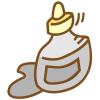
Gluep
Source Institutions
In this chemistry activity, learners make a slimy non-Newtonian fluid called "Gluep." Use this activity to introduce learners to polymers and viscosity.
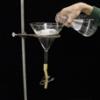
Free-living and Plant-Parasitic Nematodes (Roundworms)
Source Institutions
This lesson introduces learners to the world of nematodes (roundworms).
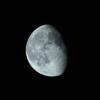
Moonlight Serenade
Source Institutions
In this activity, learners act as the Earth and observe how different angles between the Sun, Earth, and Moon affect the phases of the moon we see each month.
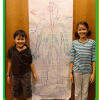
Draw Your Nervous System
Source Institutions
In this activity, learners work together to create a life-sized drawing of the human nervous system.
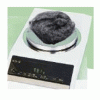
Fast Rusting
Source Institutions
In this activity, learners conduct an experiment to find out if steel wool will weigh more or less when it is burned. Learners will explore the effects of oxidation and rusting on the steel wool.
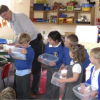
Natural Selection of Antibiotic Resistant Bacteria
Source Institutions
In this activity (p.3-4 of PDF), learners learn about disease transmission and antibiotic resistance.
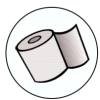
Toilet Paper Solar System
Source Institutions
In this activity, learners build a scale model of the solar system using a roll of toilet paper.
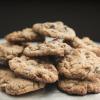
Bake Sale
Source Institutions
This activity helps learners learn about math through a real-world scenario. Three friends are baking cookies for their school’s bake sale.
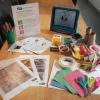
Watch and Create! Creativity For Sustainability
Source Institutions
In this activity, children and adults work together to explore their relationship with technology and examine ways to make sustainable media consumption choices.
Up, Up and Away with Bottles
Source Institutions
In this activity, learners make water rockets to explore Newton's Third Law of Motion. Learners make the rockets out of plastic bottles and use a bicycle pump to pump them with air.
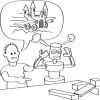
Programming Languages: Harold the Robot
Source Institutions
In this activity related to computer programming, learners give directions to a "robot" (either an adult or another learner) and find out which instructions the robot is able to follow, and how their
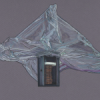
Submarine: Lift Bag Lander
Source Institutions
In this activity (on page 4), learners create a submarine using a plastic sandwich bag. This is a fun way to learn about buoyancy and how captured gas can cause objects to float.
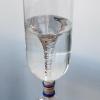
Vortex
Source Institutions
In this activity, learners create a tornado in a bottle to observe a spiraling, funnel-shaped vortex. A simple connector device allows water to drain from a 2-liter bottle into a second bottle.
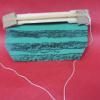
Buzzing Bee
Source Institutions
In this activity, learners explore sound by constructing an instrument toy that buzzes when you swing it.
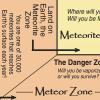
Space Rocks!: A Meteorite Game
Source Institutions
In this board game, learners explore the origins of meteors, meteoroids, and meteorites as well as the their characteristics and importance. They also discover some misconceptions about meteors.
